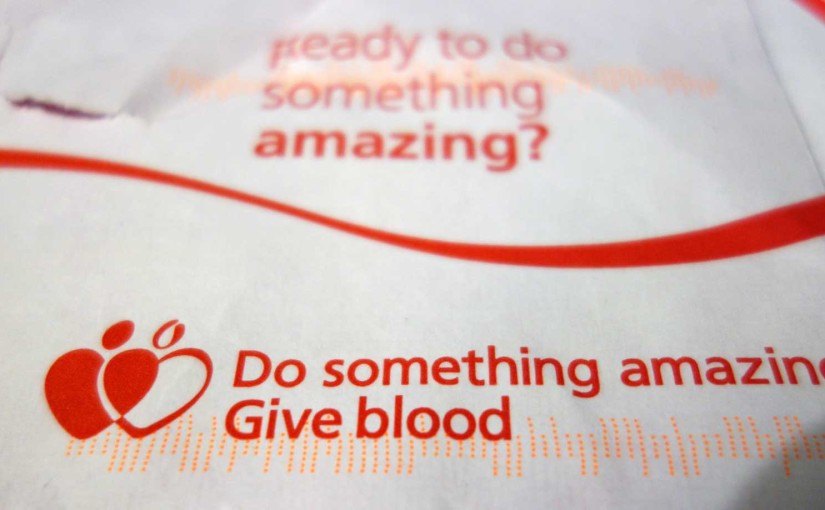Sometimes in practice, I have found I feel somewhat hypocritical. An example of this was when I was a primary care mental health worker, helping people to work on their blood / needle / injury phobias.
Whilst I could explain the principles, support people to build graded exposure ladders, talk about how blood-related phobias are the only ones where you actually can faint owing to some sort of presumably protective physiological response, I never felt like I could be truly authentic. This was because on the inside, I was also experiencing the same fears my clients were bringing. On the one hand, this made empathy easy, although at that stage in my development of a clinical identity, I did not feel confident to disclose my experiences, even though it might have been helpful at times. I felt this lack of authenticity might have meant that I might have been less effective when working with people experiencing that sort of problem. I decided that I wanted this to change.
Thus my journey towards what happened today began. Often, the ultimate goal, if people felt brave enough to aim for it, would have been to give blood. At the beginning of my journey, I did not even think that would have been possible. I could have injections but would avoid them unless absolutely necessary, and would be racked with anxiety and vivid images of what might happen in the days before any anticipated jab. Gradually, in little steps, I managed to work towards that and it happened today.
The first steps were changes in approach to needles and related objects that I encountered in my work in GP practices. Rather than avoiding them, I started to seek them out, paying attention to the sharps bins and looking at syringes and needles in drawers. This helped me to get used to them, and before long I was accustomed to them.
The next stage was to seek out and take all the opportunities to have immunisations that I could. Seasonal flu, other flus, jabs for frontline staff and so on: I made sure I had them all and gradually became less fearful of the process. I also read that not looking at the needle when the injection takes place reduces the reported pain. Previously, I had tried to make myself look, as I thought that might help. Switching to not looking seemed to make things easier.
Finally I realised that I might actually be ready to give blood. I read about it, signed up, and they started sending me letters. Initially, I still did not think that I could, but something made me sign set an appointment. Perhaps it was that urge for authenticity, but also the sense that it is a genuinely useful thing to do, and a will to conquer the fear seemed to play their roles.
As the nerves arose in the days preceding the appointment, I tried to distract myself from pointless unfounded thoughts of things that might go wrong, sometimes through relaxation exercises, but often by just thinking about other things on my mind that I could do something about. This did not necessarily mean that I always got those things done, however…
Finally, the day came. After a blustery, rainy motorcycle ride to near the venue, I changed and jogged down, half wondering if part of me had conspired to make things run so that I didn’t have much time to think beforehand, and potentially change my mind. The actual process was really straightforward. I explained it was my first time, and they were great about it. They said they get a lot of people trying to overcome fear of needles, and a lot of bikers, who sometimes show up en masse to donate.
Five years ago, when my journey towards giving blood today began, I am not sure if I would have believed it was possible. I’m really pleased to have done it, both for my sake and for the sake of other people who will receive blood, as well as for the impact it might have on my ability to be authentic when I talk to people about overcoming phobias: how hard it is, but also how exposure does work, even if it happens gradually!

